This blog post aims to explore the T Series Mind Rubrics from Kent’s Repertory and their interpretations.
The focus will be on understanding their psychological significance and the suggested remedies.
Kent’s Repertory is crucial in homeopathy, revealing how emotional states connect with physical symptoms.
Table of Contents
ToggleTALK desire to, to some one

- “TALK” means to communicate by speaking words.
- “Desire to” signifies wanting or wishing to do something.
- “To someone” refers to a specific person as the recipient of the communication.
- Altogether, “TALK desire to, to someone” suggests having a wish or intention to communicate verbally with a particular individual.
- It suggests a want to express thoughts, feelings, or information to that person.
- This phrase indicates a readiness to engage in a conversation or share something with someone specific.
- It reflects a personal inclination to connect and convey thoughts through spoken words to the designated person.
Remedies: Aur., Carb-an., Glon., Puls.
TALKATIVE (see LOQUACITY).
TALKING, complains all aggravate

- “TALKING” means expressing thoughts and ideas through speech.
- “Aggravate” indicates making something worse or more troublesome.
- “All” implies a wide range or various situations.
- “Complaints” refer to expressing dissatisfaction or negative feelings.
- “TALKING aggravate all complaints” suggests that when talking, the person tends to make all the negative feelings or issues worse.
- It suggests that discussing problems or grievances can amplify their impact.
- This pattern of communication might intensify the focus on difficulties.
- It can contribute to a sense of frustration or dissatisfaction.
- The phrase highlights the potential impact of words on how problems are perceived.
Overall, it points out that talking about complaints can worsen their effect on emotions and attitudes.
Remedies: Bell., Kali-c.
TALKS to himself
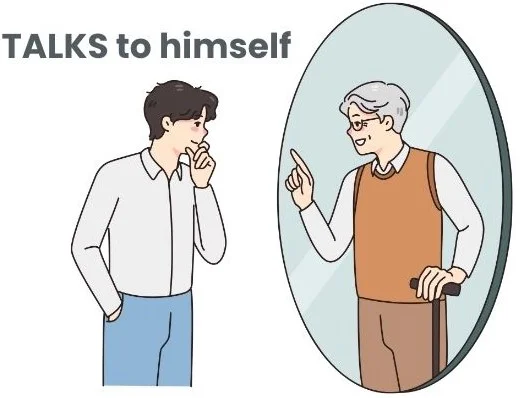
- “TALKS” means speaking and communicating thoughts.
- “Himself” refers to the person doing the talking.
- “TALKS to himself” indicates that a person is speaking aloud when alone.
- It’s like having a conversation with oneself.
- This can happen when thinking through things or working out problems.
- It’s a way to express thoughts, even when no one else is around.
- “TALKING to himself” doesn’t necessarily mean someone is “crazy”; many people do it.
- It helps clarify ideas and can provide a sense of companionship.
- It’s a way to externalize thoughts and feelings.
Overall, “TALKING to himself” is a common behaviour of speaking thoughts aloud when alone.
Remedies: Ant-t., aur., hyos., kali-bi.
TEARS things
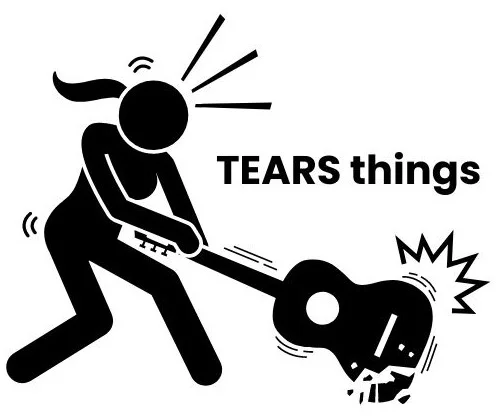
- To tear” means to pull or rip something apart forcefully.
- “The things” refer to objects, items, or belongings.
- “Tearing the things” implies damaging or ripping items with force.
- This can happen accidentally or intentionally.
- It suggests a physical action of destruction or damage.
- “Tearing the things” may occur due to frustration, anger, or accidents.
- It results in items being broken, ripped, or rendered unusable.
- It could involve tearing paper, fabric, or other materials.
In essence, “to tear the things” means causing damage to objects by forcefully pulling or ripping them.
Remedies: Bell., kali-p., stram., verat.
THEORIZING (see Plans)

- “Theorizing” is the process of forming and developing theories or explanations about certain subjects.
- It involves using observations, facts, and ideas to create a logical framework.
- Theorizing helps us understand complex concepts and predict outcomes.
- It’s like building a mental structure to explain how things work.
- “See Plans” indicates a reference to related ideas or concepts.
- Theorizing often leads to creating plans or strategies based on theories.
- It requires critical thinking and analysing information.
- Theorizing is essential in various fields, from science to philosophy.
In short, “theorizing (see Plans)” means forming logical explanations or theories to understand concepts, often leading to the creation of plans or strategies based on those theories.
Remedies: Cann-i., chin., coff, sulph.
THINKING, aversion to
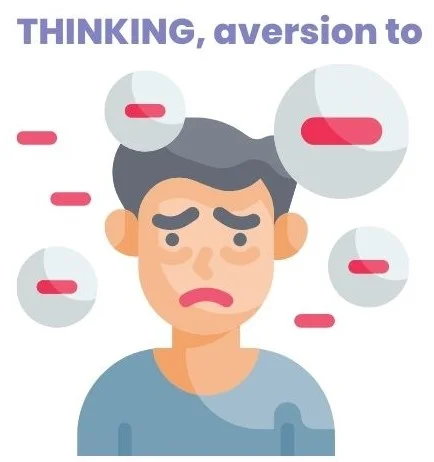
- “THINKING” refers to the mental process of considering, analysing, and processing thoughts and ideas.
- It involves using our brain to review, reason, and problem-solve.
- “Aversion to” indicates a strong dislike or avoidance of something.
- “THINKING, aversion to” suggests an unwillingness or resistance towards engaging in deep or complex thinking.
- This could be due to mental fatigue, fear of confronting certain thoughts, or a preference for simpler activities.
- It might lead to avoiding intellectual tasks or seeking distractions.
- However, balanced thinking is important for decision-making and learning.
- Overcoming this aversion can lead to improved cognitive skills and better understanding.
Overall, “THINKING, aversion to” means a strong disinclination towards engaging in deep or intricate mental processes.
Remedies: Lec., Ph-ac., Phos.
THOUGHTS of death (see Death)

- “THOUGHTS” are the ideas and mental images that come to our minds.
- They can be about various topics, experiences, or concepts.
- “Death” refers to the end of life, the cessation of living functions.
- “THOUGHTS of death” means having ideas or images related to the concept of dying.
- These thoughts might include pondering one’s own mortality or the idea of death in general.
- They could arise from personal experiences, fears, or philosophical contemplation.
- “THOUGHTS of death” might evoke different emotions, such as fear, curiosity, or introspection.
- They are a common aspect of human thinking and can influence our perspective on life.
- Discussing these thoughts openly can help with understanding and coping.
In summary, “THOUGHTS of death” are mental reflections on the concept of mortality and the end of life.
Remedies: Cann-i., Nat-m.
THREATENING

- “THREATENING” describes something that causes fear or danger.
- It’s when there’s a possibility of harm or trouble.
- This can be a person, situation, or thing that might hurt us.
- “THREATENING” things can make us feel unsafe or worried.
- It’s like a warning sign that something bad might happen.
- These things might make us feel anxious or cautious.
- “THREATENING” situations require us to be careful and aware.
- People might feel threatened by bullies or wild animals, for example.
- Recognizing threats helps us take action to stay safe.
In short, “THREATENING” means something that could cause harm or trouble, making us feel scared or cautious.
Remedies: Hep., stram., Tarent.
THROWS things away

- “THROWS things away” can reflect a desire for change and renewal.
- It signifies a psychological need to eliminate clutter or negative associations.
- Disposing of items might symbolize letting go of emotional baggage.
- This action may provide a sense of control over one’s environment.
- “THROWS things away” could mirror a subconscious urge to cleanse the mind.
- It might represent a coping mechanism, discarding reminders of the past.
- This behaviour can manifest during times of stress or transition.
- “THROWS things away” may offer a temporary relief from emotional weight.
- It can indicate a subconscious effort to create mental space.
In essence, “THROWS things away” can symbolize a psychological release and a step towards emotional well-being.
Remedies: Cina., kreos., Staph.
THUNDER storm
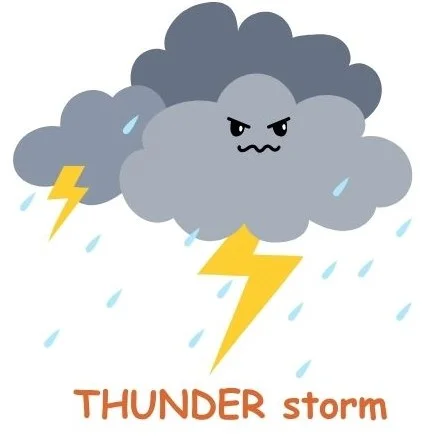
- “Symptoms” refer to physical or emotional signs of a condition or state.
- “Aggravate” means to worsen or intensify.
- “Before and during” indicates the time frame when the change occurs.
- “Thunderstorm” is a weather event characterized by lightning, thunder, and rain.
- “Symptoms aggravate before and during thunderstorm” suggests that certain physical or emotional conditions worsen as a thunderstorm approach and occurs.
- It implies a possible sensitivity to changes in atmospheric pressure, electromagnetic fields, or other factors associated with thunderstorms.
- This phenomenon might affect individuals with certain health conditions or sensitivities.
- Common examples include headaches, joint pain, anxiety, or migraines worsening during thunderstorms.
- The correlation underscores the complex interaction between weather changes and human well-being.
Overall, this phrase highlights the potential impact of weather on certain health conditions, particularly during thunderstorms.
- Before: Rhod.
- During: Phos., rhod., sil.
TIME, fritters away his

- “TIME” refers to the passage of moments in our lives.
- “Fritters away” means wasting or using something carelessly.
- “His” refers to a person’s possession.
- “TIME, fritters away his” implies someone is using their time thoughtlessly.
- Psychologically, it suggests a lack of focus and purpose.
- This person may engage in unproductive activities or procrastinate.
- It could stem from avoidance, low motivation, or disorganization.
- Wasting time can lead to stress, regret, and unfulfilled potential.
Overall, this phrase suggests the importance of valuing and utilizing time for well-being and personal growth.
Remedies: Cocca., nux-v.
TIMIDITY

- “TIMIDITY” is when someone feels shy or nervous around others, especially in social situations.
- It’s like having a cautious personality, where you’re hesitant to engage with people.
- This can happen because you’re afraid of being judged or criticized.
- Timid people might avoid attention to avoid feeling uncomfortable.
- It can make you doubt yourself and make it harder to connect with others.
- Timidity can come from past experiences, not feeling confident, or feeling anxious.
- Overcoming it means building confidence and practicing social skills.
Overall, timidity is a careful way of approaching social interactions.
Remedies: Bar-c., Calc., Calc-s., Gels.
TORMENTS everyone with his complaints
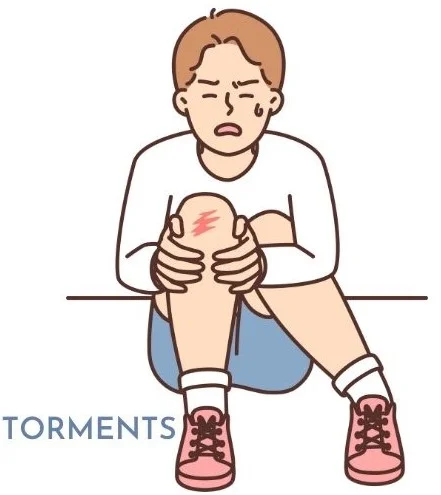
- “TORMENTS everyone with his complaints” means someone constantly bothers or distresses others by sharing their grievances or problems.
- It’s like they can’t stop talking about their difficulties, which can be overwhelming for those around them.
- This behaviour might stem from a need for attention or a habit of focusing on negative aspects.
- The person’s constant complaints can create a negative atmosphere and affect people’s mood.
- It’s important to address their concerns, but the excessive complaining can become draining.
- Finding a balance between expressing concerns and maintaining a positive environment is key.
Ultimately, “TORMENTS everyone with his complaints” describes how incessant negativity can impact relationships and well-being.
Remedy: Zinc.
TORPOR

- “TORPOR” refers to a state of physical or mental inactivity, sluggishness, or lack of energy.
- It’s a condition where a person feels lethargic, slow, and unresponsive to stimuli.
- This state can be caused by factors like fatigue, illness, or emotional distress.
- During torpor, a person may have difficulty concentrating, moving, or engaging in activities.
- It can be a temporary response to stress or a sign of an underlying physical or psychological issue.
- Torpor might result in reduced motivation and a feeling of being disconnected from the surroundings.
- Overcoming torpor often involves rest, self-care, and addressing the underlying causes.
Overall, “TORPOR” represents a state of reduced physical or mental activity, often accompanied by feelings of lethargy and sluggishness.
Remedies: Nat-m., Nux-m., Op.
TOUCH things, impelled to
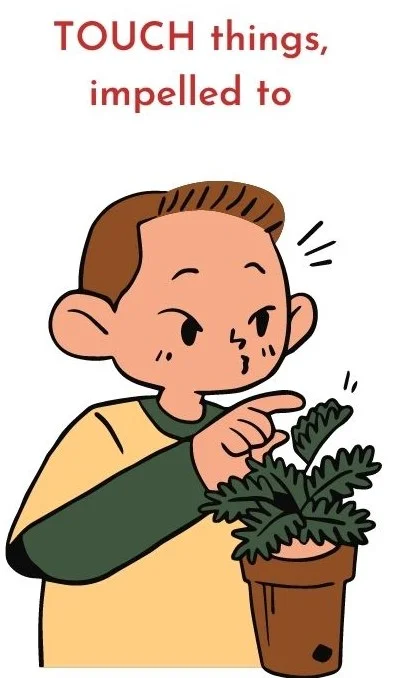
“TOUCH things, impelled to” describes a compelling urge or strong impulse to physically interact with objects through touch.
- This behaviour involves a heightened desire to feel and explore different textures, surfaces, and physical sensations.
- The individual may find it difficult to resist the need to touch things around them.
- This impulsive behaviour could stem from sensory curiosity, seeking tactile stimulation, or a psychological need for sensory input.
- “TOUCH things, impelled to” might manifest as repeatedly touching surfaces, objects, or materials without an apparent purpose.
- It may be linked to sensory processing differences or sensory-seeking tendencies.
- Understanding and managing this behaviour could involve sensory-friendly strategies, redirection, or seeking sensory input in alternative ways.
- If it becomes disruptive or problematic, seeking guidance from professionals may be beneficial.
Overall, “TOUCH things, impelled to” signifies a strong and often involuntary urge to engage with the physical world through touch.
Remedy: Lycps.
TOUCHED, aversion to being

- “TOUCHED, aversion to being” signifies a notable discomfort or hesitance when faced with physical contact initiated by others.
- People with this aversion might experience feelings of unease, anxiety, or even distress when someone tries to engage in physical touch with them.
- his reluctance can include various types of touch, ranging from handshakes and hugs to even casual gestures like pats on the back.
- The source of this aversion could originate from factors like heightened sensory sensitivities, personal boundaries, or negative prior encounters.
- Individuals averse to touch often opt for limited physical interactions, prioritizing the preservation of their personal space.
- Such a disposition can impact social engagements and relationships, possibly leading to a preference for minimal physical closeness.
- Respectfully understanding and acknowledging an individual’s discomfort with touch is crucial for fostering positive and considerate interactions.
- In essence, “TOUCHED, aversion to being” reveals a substantial unease or reservation towards physical contact instigated by others, potentially influencing social dynamics and personal connections.
Remedies: Ant-c., Cham., Kali-c., Tarent.
TRANQUILITY/SERENE/CALMNESS

“TRANQUILITY,” “SERENE,” and “CALMNESS” signify peaceful states without disturbance.
- “Tranquillity” refers to quiet calmness, promoting relaxation and inner peace.
- “Serene” suggests untroubled composure, even amidst challenges.
- “Calmness” is the absence of agitation, fostering mental clarity and stability.
Differences
- “Tranquillity” emphasizes peace without chaos.
- “Serene” implies poise during difficulties.
- “Calmness” focuses on emotional stability.
- “Tranquillity” can relate to environments, “serene” to attitude, and “calmness” to both.
In summary, they convey peacefulness, with “serene” emphasizing clarity and “calmness” cantered on emotional stability. These terms capture aspects of a composed state.
Remedies: Ph-ac., cham., plat., coff.
TRAVEL, desire to

- “TRAVEL, desire to” refers to a strong inclination or longing to journey and explore new places.
- It signifies a keen enthusiasm for experiencing different locations, cultures, and landscapes.
- Individuals with this desire may feel a sense of adventure and curiosity about the world.
- They may yearn for the excitement of discovering unfamiliar destinations and embracing novel experiences.
- The desire to travel can arise from a variety of motivations, such as a quest for knowledge, a need for change, or a passion for exploration.
- It reflects a wanderlust and a willingness to step outside of one’s comfort zone to discover the wonders of the world.
Remedies: Calc-p., hipp., iod., tub.
TRIFLES, seem important

TRIFLES, seem important” refers to the perception that insignificant or minor matters hold a significant and undue level of importance. Here’s a breakdown of the meaning:
Trifles
These are small, unimportant, or trivial things that might not have much significance in themselves.
Seem Important
Despite their trivial nature, these trifles appear to carry a weight or significance that is greater than what they truly deserve.
People may give them more attention or importance than they call for.
In simpler terms, “TRIFLES, seem important” suggests a situation where small and unimportant things are treated as if they are much more significant than they actually are.
It highlights the tendency to overly focus on minor details or give undue attention to things that don’t truly matter in the grand scheme of things.
Remedies: Ferr., ip.






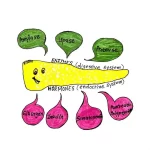
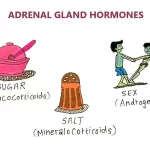


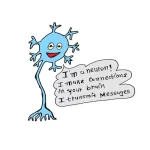
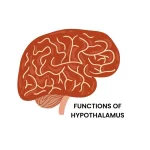

Leave a Reply